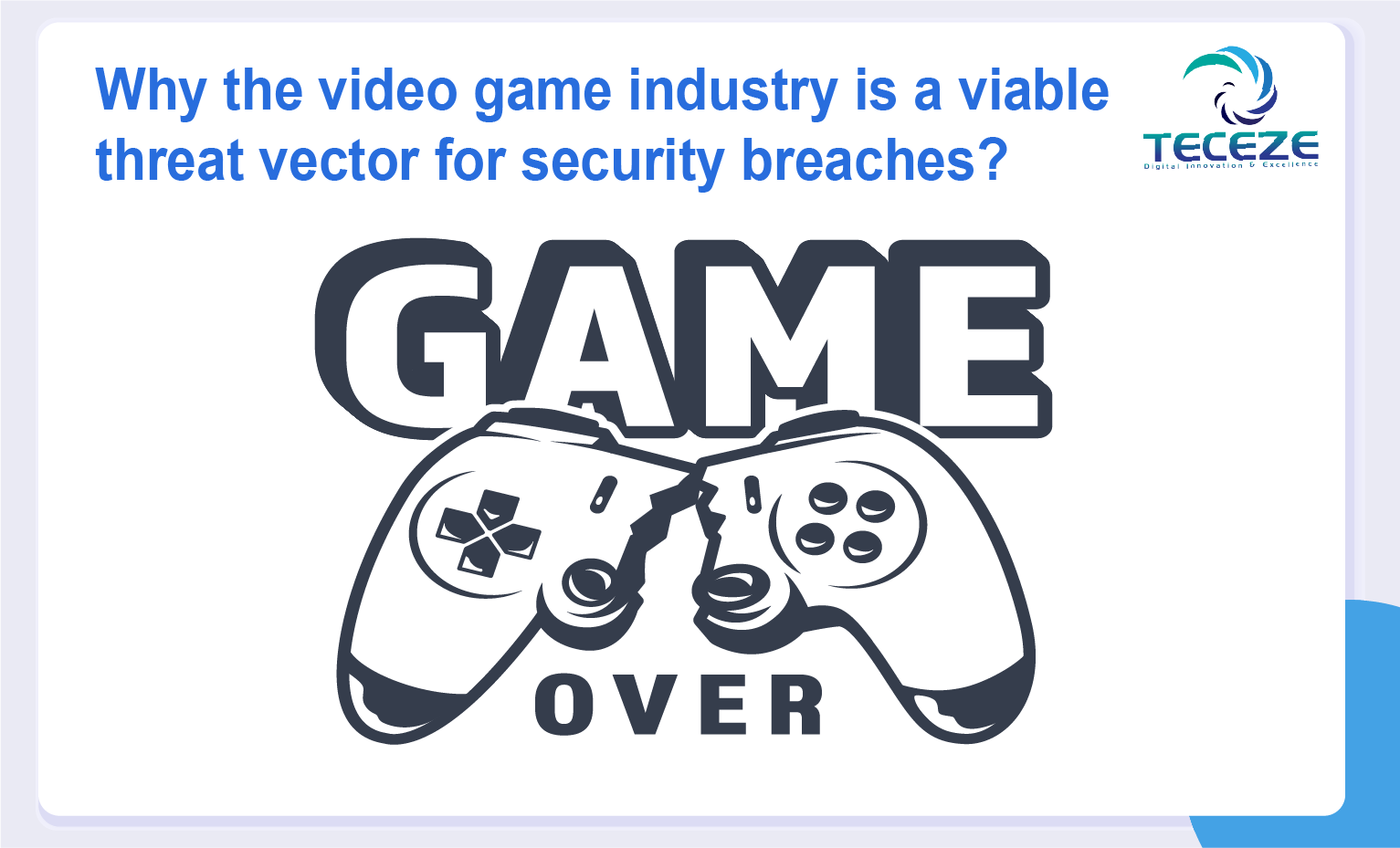Video Gaming Industry Is A Viable Threat Vector For Security Breaches?
Industries that control confidential data have long struggled with hacking and data breaches, such as retail and banking. Despite higher standards of protection for financial websites and databases, these breaches occur. They also introduce features such as dual authentication and higher levels of encryption because of the confidential data these sites handle. Unfortunately, when it comes to cyber hacking and security problems, the gaming industry is frequently ignored. The gaming industry is vulnerable to security concerns and many customers are completely unaware of how much danger their information might be in.
Main reasons why the gaming industry presents such a high level of security risk:
Lack of Functionality for Website Security
There is not a high degree of website protection for many games and gaming forums. Businesses that build games or forums may start on a budget that is shoestring and simply do not put much thought into safety because they consider it unnecessary.
In addition, they can select a website host that does not pay a high security premium. Or, to protect the site from DDoS attacks, buying and installing an SSL certificate, or using FTP, the gaming company can fail to implement very simple security features.
Reuse of Password by Users
Actually, the biggest security risk on gaming sites may come from the users themselves of the game.
Gaming accounts are often linked to bank accounts or credit cards, yet the main security risk is that passwords are reused across multiple sites by most individuals. As a result, not only in attacks to penetrate the gaming accounts themselves, but also in attacks on other sites, credentials for video game sites are used.
For example, hackers could use your login details to gain access to your email account, banking apps, and any other places where you use the same or similar passwords if you use the same login information on your Xbox Live as you do for your email account (or even just a very similar one).
In addition, many mobile games connect to Facebook, which can provide hackers with a treasure trove of information that is sometimes used in passwords, including where you work, pet names, birthdays, and other details.
So, even if a hacker gains access to your account in a gaming forum, it may not seem like a big deal, they might do much more harm than wasting money on in-game upgrades.
How to protect your data better on gaming sites and forums?
How do you protect yourself and your details from gaping holes in the protection of gaming platforms? There are certain key steps that you can take, namely;
1. Keep an eye out for Pirated Gaming Sources
As far as possible, purchase your games from confirmed sources. Try to resist the urge through unauthorised means to get games at lower prices.
You could be lured by the attackers into installing Ransomware. Moreover, by doing so, you may even be indulging in piracy.
2. Think again if you think the virtual world is better than reality
You can’t place your trust in someone you’ve come across on a gaming site quickly. So, beware of any relation or offers to get coins or in-game currency.
3. Using solid and specific Gaming Credentials
It is a poor cyber practise to use the same password for all online accounts. This makes you an easy target through password stuffing attacks for hackers.
To protect your gaming accounts, make sure that good passwords and two-factor authentication (2FA) are used.
4. Watch out for Phishing Attacks
Scam messages from intimidating actors disguising themselves as gaming companies are not a new trick. So, make sure you know how spam emails can be identified.
Check if the organisation has an official website and never engage in providing personal information via email.
Conundrum for the gaming industry
It is paramount in the digital age to provide a seamless online experience and, as a result, many organisations fail to implement robust security procedures for fear of alienating clients. Without upsetting their players, the challenge for the video game industry is to find a balance between increased protection. One notable exception is Microsoft, which with Xbox has introduced rigorous security measures in line with the rest of its business. As a consequence, on the dark web, it is almost difficult to find Xbox credentials.
The escalation of this issue shows no signs of slowing down without a radical shift in attitude from both gamers and the industry overall. Data from next year looks set to continue to reflect this growing black hole in cybersecurity.
Industries that control confidential data have long struggled with hacking and data breaches, such as retail and banking. Despite higher standards of protection for financial websites and databases, these breaches occur.
 Back to Insights
Back to Insights
 Previous
Previous 